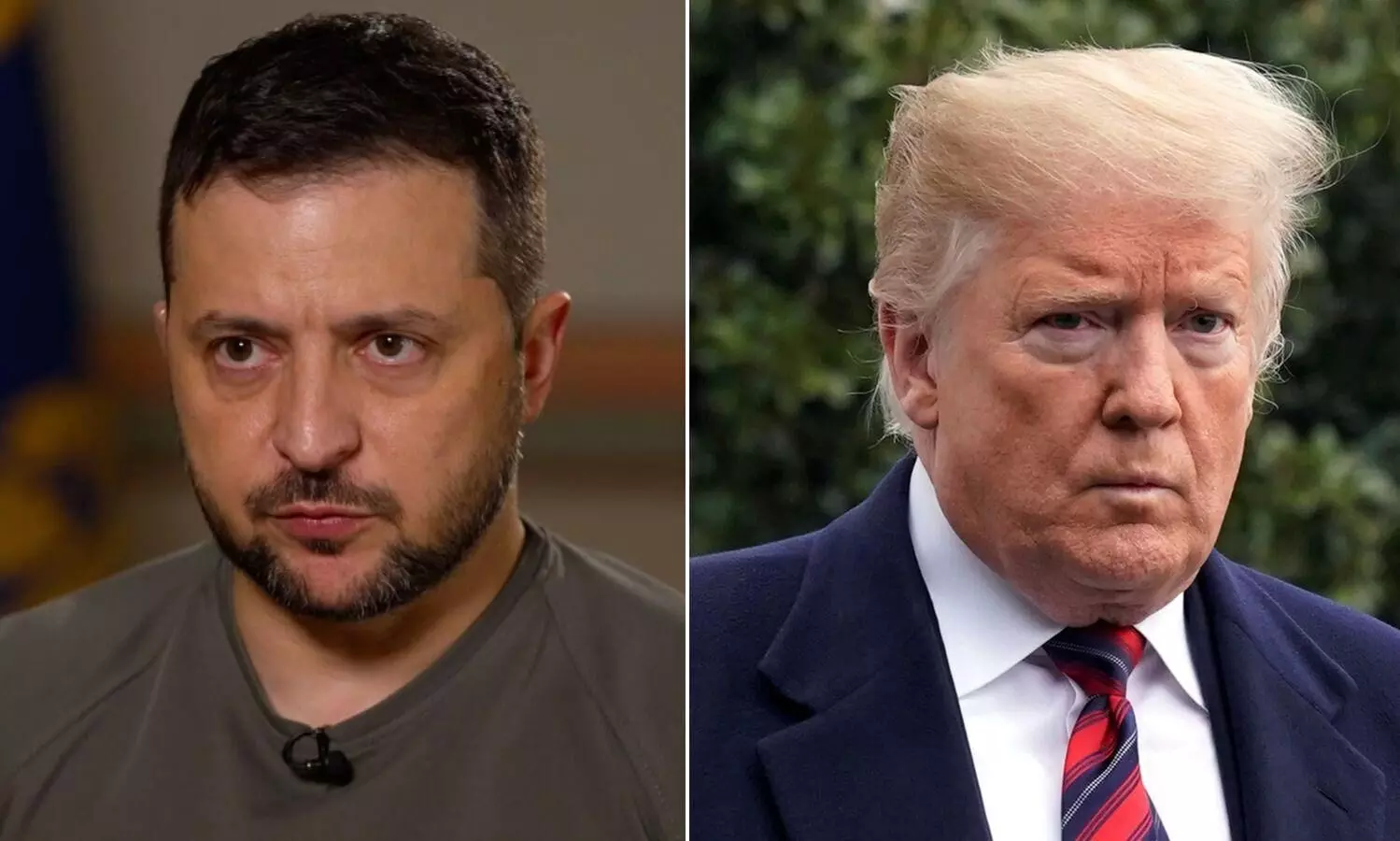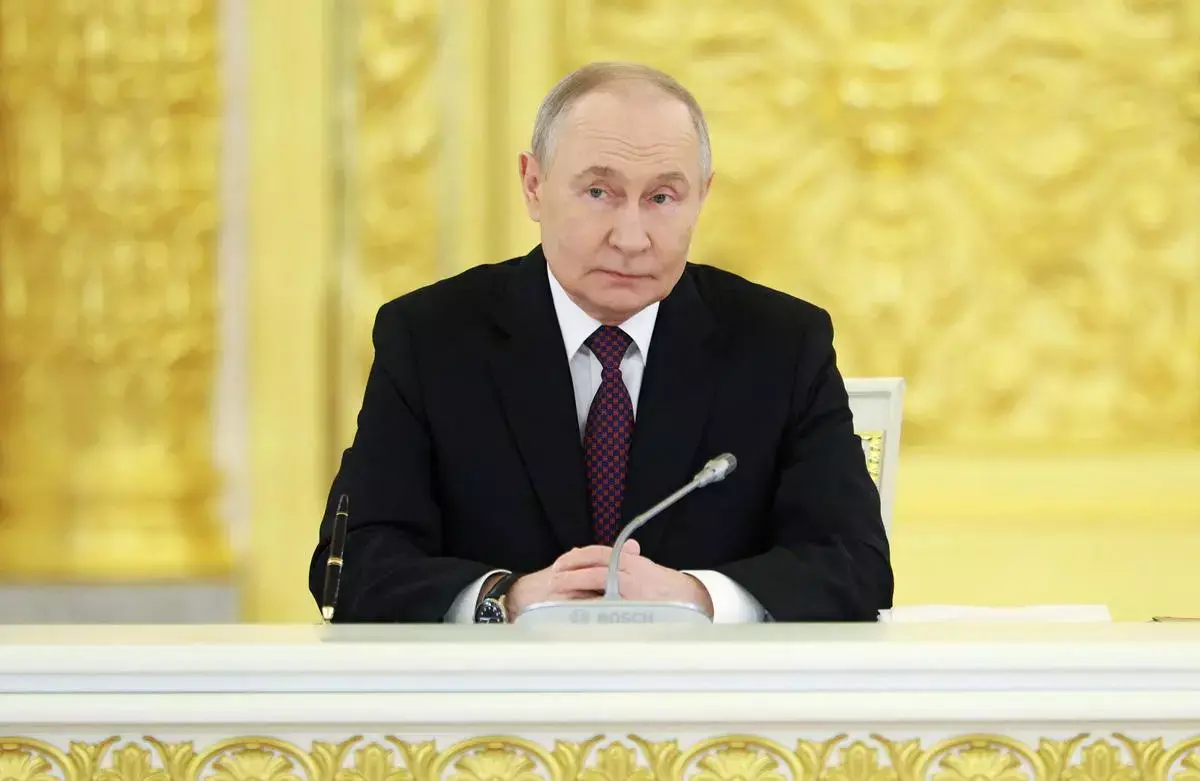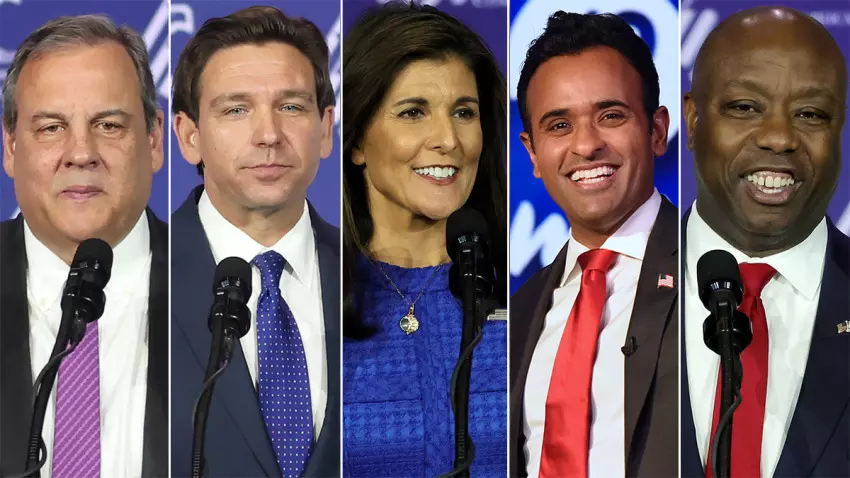
5 Republicans qualify for third 2024 presidential debate
text_fieldsWashington: The US Republican National Committee (RNC) has announced that five candidates, including Indian-origin Nikki Haley and Vivek Ramaswamy, have qualified for the third presidential debate scheduled to take place in Miami on Wednesday.
The remaining three candidates are Florida Governor Ron DeSantis, former New Jersey Governor Chris Christie and South Carolina Senator Tim Scott, CNN reported.
The third debate will not see participation from North Dakota Governor Doug Burgum, who had qualified for the previous two debates; and former Arkansas Governor Asa Hutchinson, who appeared in the first debate but did not make the stage for the second one.
Meanwhile, former Vice President Mike Pence, who had qualified for the first two debates, dropped out of the Republican primary last month.
 Also Read:Zelensky questions Trump's claim to end Russia-Ukraine war in 24 hrs
Also Read:Zelensky questions Trump's claim to end Russia-Ukraine war in 24 hrs
“We are looking forward to our third debate in Miami, a welcome opportunity for our candidates to showcase our winning conservative agenda to the American people,” CNN quoted RNC Chairwoman Ronna McDaniel as saying in a statement.
To qualify for the third debate, the candidates had to register 4 per cent in either two national polls or one national poll and two polls from separate early-voting states -- Iowa, New Hampshire, Nevada, and South Carolina.
They also had to reach 70,000 unique donors, with at least 200 donors in 20 states or territories.
Of the five candidates who’ve made the Miami stage, the stakes are particularly high for Haley and DeSantis, reports CNN.
The Miami debate will air at 8 p.m. on Wednesday night on NBC News. Meanwhile, the fourth Republican debate will take place on December 6 in Tuscaloosa, Alabama.
Trump, the front-runner in this Republican primary, is skipping the debate – as he did the two previous ones in Milwaukee and Simi Valley, California, reports CNN. He will instead headline a South Florida rally as counterprogramming to the debate. Trump’s team has argued that there should be fewer debates.
With inputs from agencies


















